
|
|
|
|
 |
 |
| INDUSTRIAL FORUM |
|
 |
| . |
|
|
Sergi Abadal
Universitat Politècnica de Catalunya, Spain
Invited - Industrial Forum
Sergi Abadal received the PhD in Computer Architecture from the Department of Computer Architecture, Universitat Politècnica de Catalunya (UPC), Barcelona, Spain, in July 2016. Previously, he had obtained the MSc and BSc in Telecommunication Engineering at UPC in 2011 and 2010, respectively. He has held several visiting positions in Georgia Tech in 2009, University of Illinois Urbana-Champaign in 2015 and 2017, and the Foundation of Research and Technology – Hellas in 2018. Currently, he is Coordinator of a European FET-OPEN project called WIPLASH and holder of a Starting Grant from the European Research Council (ERC), called WINC, both about wireless chip-scale networks. From 2020, he acts as one of the ambassadors of the European Innovation Council (EIC) through its program of National Champions. He is Area Editor of the Nano Communication Networks (Elsevier) Journal, has served as TPC member of more than 20 conferences, and has published over 80 articles in top-tier journals and conferences. Abadal was the recipient of the Nano Communication Networks Young Investigator in 2019, UPC Outstanding Thesis award in 2016, the INTEL Doctoral Fellowship in 2013, Accenture Award for undergraduate students in 2012. His current research interests are graphene antennas, terahertz wireless communications, chip-scale wireless interconnects, and the application of these techniques for the creation of next-generation computer architectures.
|
|
|
|
|
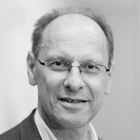 |
| INDUSTRIAL FORUM |
|
 |
| . |
|
|
Gerd Bacher
University of Duisburg-Essen, Germany
Invited - Industrial Forum
Gerd Bacher studied physics and received his PhD at the University of Stuttgart, Germany. He continued his career as senior scientist at Würzburg University and joined Tokyo Institute of Technology, Japan as a guest professor 1996/1997. In 2003, Gerd Bacher got a full professorship for electronic materials and devices at the faculty of engineering at the University of Duisburg-Essen, where he co-founded the center of nanointegration (CENIDE) and established the studying program NanoEngineering. His research activities cover nanomaterials and nanodevices for optoelectronics, information science and energy applications, with a main focus on 2D materials and nanocrystals. He published > 300 scientific papers, delivered more than 90 invited talks and acts as a reviewer for numerous scientific journals and funding agencies.
|
|
|
|
|
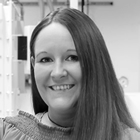 |
| INVITED |
|
 |
| . |
|
|
Claudia Backes
University of Kassel, Germany
Invited – Plenary Session
Claudia is a chemist by training and has received her Ph.D with honors in 2011 from the University of Erlangen, Germany. After some time as deputy executive director in the Erlangen Cluster of Excellence “Engineering of Advanced Materials” Claudia received a fellowship grant from the German Research Foundation (DFG) in 2012 and moved to Jonathan Coleman’s groups at Trinity College Dublin, Ireland. In 2015, she returned to Germany and started her independent research at the Chair of Applied Physical Chemistry at Heidelberg University funded through the prestigious Emmy Noether funding from the German Research Foundation from 2016. In 10/2021, she was appointed Chair Professor of Physical Chemistry of Nanomaterials at Kassel University. Claudia’s research interests are in liquid exfoliation, nanosheet size control and size-dependent properties, chemical modification and production of composites and hybrid structures.
|
|
|
|
|
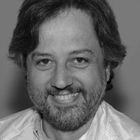 |
| INDUSTRIAL FORUM |
|
 |
| . |
|
|
Marcello Binetti
LayTec AG, Germany
Invited - Industrial Forum
After graduating in Physics at the University of Bari, Marcello Binetti gained his Ph.D. in Physical Chemistry from the University of Essen in 2001 and joined the Fritz-Haber-Institut of the Max Planck Society as postdoc. He joined LayTec in 2004, where he gained a broad experience in semiconductor metrology product support and management, contributing to establish LayTec as a leading provider of effective metrology solutions both in research and production environments. LayTec Manager for Si-SEMI activities (2016 – 2020), he is now senior scientist for novel applications.
|
|
|
|
|
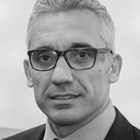 |
| INDUSTRIAL FORUM |
|
 |
| . |
|
|
Francesco Bonaccorso
BeDimensional, Italy
Invited - Industrial Forum
Francesco Bonaccorso is the Scientific Director of BeDimensional SpA and Visiting Scientist at the Istituto Italiano di Tecnologia. He gained the PhD from the University of Messina after working at the Italian National Research Council, the University of Cambridge and the University of Vanderbilt. In 2009 he was awarded a Royal Society Newton International Fellowship at Cambridge University, and a Fellowship at Hughes Hall, Cambridge, obtaining a MA. He was responsible in defining the ten years scientific and technological roadmap for the Graphene Flagship. He is now Deputy of the Innovation of the Flagship. He was featured as 2016 Emerging Investigator by J.Mater.Chem.A and in 2019 by ChemPlusChem. His research interests encompass both the fundamental understanding and solution processing of novel nanomaterials and their technological applications. He authored/co-authored more than 120 publications and 12 patents.
|
|
|
|
|
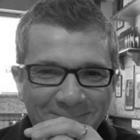 |
| INDUSTRIAL FORUM |
|
 |
| . |
|
|
Paolo Bondavalli
Thales Research & Technology, France
Invited - Industrial Forum
Dr Hdr Paolo Bondavalli is in charge of nanomaterials transverse topic at Thales Research and Technology. He has more than 20 years of experience on nanomaterials and 18 on carbon nanomaterials (graphene, CNTs). Graduated from University of Parma (Italy) in 1995 (Physics). PhD from INSA of Lyon (EEA) in 2000. HDR from Paris Saclay (2011). He has published two book as single authors dealing with 2D materials. He has just organized a symposium at the MRS Spring meeting 2022 on 2D topological matter.
|
|
|
|
|
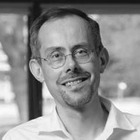 |
| INDUSTRIAL FORUM |
|
 |
| . |
|
|
Vincent Bouchiat
Grapheal, France
Invited - Industrial Forum
Vincent Bouchiat is the CEO of Grapheal, a company spin-off from Neel Institute focusing on bioelectronic and healthcare applications of graphene. He is on leave from the French National Research Center (CNRS) at Grenoble, where he has a permanent position since 1997. He received an engineer degree from ESPCI in 1993 and a Master Degree from the University of Paris, Pierre & Marie Curie the same year. He has completed his Ph.D. on quantum devices at CEA-Saclay in 1997 under supervision of Michel Devoret and Daniel Estève. He got the Visiting Miller Professorship Award from University of California, Berkeley in 2007, and the Lee Hsun Research Award from the Chinese Academy of Sciences (2017). He co-authored more than 100 publications with over 4000 citations and hold 9 international patents.
|
|
|
|
|
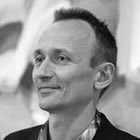 |
| INDUSTRIAL FORUM |
|
 |
| . |
|
|
Peter Bøggild
DTU Physics, Denmark
Invited - Industrial Forum
Peter Bøggild is professor and group leader at DTU Physics at the Technical University of Denmark. He obtained his PhD in low temperature solid state physics at the Copenhagen University in 1998, and became a full professor in 2013 at DTU. He has worked across numerous areas, including nanomechatronics/robotics, topology optimization, nanometrology, nanotubes/nanowires, surface science, material synthesis and microfabrication, mesoscopic physics and simulations, but is today is leading a group entirely focusing on graphene and other 2D materials, with emphasis on large scale fabrication/applications, electronics, terahertz physics/metrology and material science. He has published more than 200 papers, mostly on 2D materials, and is committed to push fundamental research in two-dimensional materials towards real and viable technologies and applications.
|
|
|
|
|
 |
| INVITED |
|
 |
| . |
|
|
Cinzia Casiraghi
University of Manchester, UK
Invited – Plenary Session
Prof Casiraghi holds a Chair in Nanoscience at the Department of Chemistry, University of Manchester (UK). She received her B.Sc. and M.Sc. in Nuclear Engineering from Politecnico di Milano (Italy) and her Ph.D. in Electrical Engineering from the University of Cambridge (UK). In 2007, she was awarded with the prestigious Kovalevskaja Award (1.5M Euro). In 2010 she joined the department of chemistry at the University of Manchester. She is recipient of several awards, including the ERC Consolidator (2015), ERC Proof of Concept (2020), ERC Advanced grants (2022), as well as the Leverhulme Award in Engineering (2016, 100K GBP), and the RSC 2020 Gibson-Fawcett Award. Her current research work focuses on the development of biocompatible 2D inks and their use in printed electronics and biomedical applications.
|
|
|
|
|
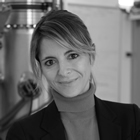 |
| INVITED |
|
 |
| . |
|
|
Camilla Coletti
Istituto Italiano di Tecnologia (IIT), Italy
Invited – Plenary Session
Camilla Coletti is a tenured Senior Scientist of the Istituto Italiano di Tecnologia (IIT) and principal investigator of the research line 2D Materials Engineering. She is the coordinator of the Center for Nanotechnology Innovation (CNI@NEST) of Pisa and of the Graphene Labs. She has been hired by IIT in 2011 after being an Alexander von Humboldt postdoctoral fellow at the Max Planck Institute for Solid State Research of Stuttgart (Germany). She received her PhD degree from the University of South Florida in 2007 and her MS degree from the University of Perugia in 2004 (both in Electrical Engineering). She is expert in the synthesis of highly-crystalline 2D materials via chemical vapour deposition (CVD) and in the investigation of their electronic, chemical and structural properties. Her research is focused on: (i) synthesis and integration of scalable 2D materials for optoelectronics, photonics and biomedicine; (ii) engineering the interface and properties of 2D heterostructures. Overall, she is author of more than 150 peer-reviewed publications, authored 4 book chapters, edited 1 book, filed several international patents (holds 3) and delivered more than 50 invited talks at international conferences.
|
|
|
|
|
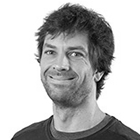 |
| INDUSTRIAL FORUM |
|
 |
| . |
|
|
Aron W. Cummings
ICN2, Spain
Invited - Industrial Forum
Aron Cummings is a Senior Researcher at the Catalan Institute of Nanoscience and Nanotechnology (ICN2) in Barcelona, Spain. He obtained his PhD from Arizona State University and was a postdoctoral researcher at Sandia National Laboratories before joining ICN2. He specializes in numerical simulation of the transport of charge, spin, and heat in nanoscale systems such as carbon nanotubes, nanowires, graphene, and other 2D materials, and how the properties of these materials may be exploited for next-generation applications in electronics, spintronics, and sensing.
|
|
|
|
|
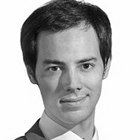 |
| INDUSTRIAL FORUM |
|
 |
| . |
|
|
Alessandro Dani
LayerOne, Norway
Invited - Industrial Forum
Alessandro Dani holds the role of Chief Commercial Officer (CCO) in LayerOne AS, a Norwegian startup that develops new graphene-based materials. In his work, Alessandro is responsible for the marketing of the products and the development of the LayerOne brand, with the final aim of transforming the startup into an established industrial reality. Alessandro previously worked in the chemical industry, taking on various roles in the innovation department, including that of Corporate Entrepreneur. Alessandro received his degree and doctorate in Chemistry and Material Science at the University of Turin and spent a period as PostDoc at the Max-Planck Institute Colloids and Interfaces in Potsdam
|
|
|
|
|
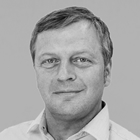 |
| INDUSTRIAL FORUM |
|
 |
| . |
|
|
Georg Düsberg
Universität der Bundeswehr München, Germany
Invited - Industrial Forum
Georg S. Duesberg graduated in Physical Chemistry from the University of Kassel, Germany in 1996. He worked as scientist at Max-Planck-Institute for Solid State Research, Stuttgart, Germany and Trinity College Dublin, Ireland from 1997 – 2001 and gained his PhD at the University of Tübingen, Germany in 2000. From 2001 – 2005 he worked at the Infineon AG, in the Corporate Research Department in Munich, followed by two years in the Thin Films Department at Qimonda AG, Dresden. In 2007 Georg S. Duesberg became Assoc. Prof. in the School of Chemistry of Trinity College Dublin, Ireland and a Principal Investigator in at the National Research Institute CRANN. In 2017 Prof. Duesberg took on the Chair for Sensortechnology at the University of the Bundeswehr Munich. Georg S. Duesberg has co-authored more than 250 publications with more than 41000 citations (H-index 85, Google) and has filed more than 25 patents. His research focuses on the synthesis, characterization and devices fabrication of low-dimensional structures
|
|
|
|
|
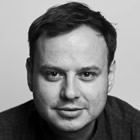 |
| WORKSHOP 1 |
|
 |
| . |
|
|
Dmitri Efetov
LMU, Germany
Invited – Workshop 1: Twistronics, 2D Magnetism and Topological Phenomena
Prof. Dmitri K. Efetov (M) received a Diploma (M.Sc.) in Physics from ETH Zurich (Switzerland) in 2007, and a M.A., M. Ph. and a Ph.D. in Physics from Columbia University (USA) in 2014, under supervision of one of the pioneers of graphene Prof. Philip Kim. Prior to joining ICFO in 2017, he had worked as a postdoctoral researcher at the Massachusetts Institute of Technology (MIT, USA). Since 2017 Dmitri is a professor and group leader at ICFO, whose research program concentrates on the development of novel composite materials known as “van der Waals (vdW) hetero-structures”, which consist of graphene and other 2D materials. Dmitri received the Charles H. Towns Award for his outstanding research achievements during his PhD, and the Obra Social ”la Caixa” Junior Leader Fellowship and an ERC starting grant to start his independent research group at ICFO. Prof. Efetov is leader of the 2D-SIPC project in the Quantum Flagship (1B€ project for 10 years), as well as a member of its Science and Engineering board
|
|
|
|
|
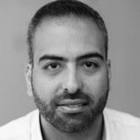 |
| INDUSTRIAL FORUM |
|
 |
| . |
|
|
Salim El Kazzi
National University of Singapore, Singapore
Invited - Industrial Forum
Salim El Kazzi joined the NUS-AMAT Corp Lab in 2019 as a senior research fellow leading the large-scale integration of 2D Materials for different CMOS applications. He received his Ph.D. degree from IEMN-Lille 1 in 2012 on the growth of III-V on commercial substrates. After his postdoc at the MIT-Singapore alliance SMART, he joined IMEC in 2013 as a research scientist to lead the activities of III-V epitaxy and gate stack deposition by MBE for steep tunneling devices. In 2015, he pioneered the growth of 2D-MX2 semiconductors by plasma-source MBE and later led the TMDCs lab and fab MOCVD growth for the beyond CMOS program.
|
|
|
|
|
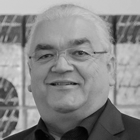 |
| INDUSTRIAL FORUM |
|
 |
| . |
|
|
Norbert Fabricius
ISC, Germany
Invited - Industrial Forum
Dr. Norbert Fabricius is responsible for standardization of nanotechnology at the IEC (International Electrotechnical Commission. In his industrial career between 1986 and 2002 he developed materials and processes for the manufacturing of integrated optical components used in telecommunication networks. His last industrial position was director operations at JDS Uniphase in Germany. In 2003 he joined the KIT and headed the Helmholtz programs “Microsystem Technologies” and “Nanotechnology” until 2008. After 2008 his main focus was on the standardization aspect in nanotechnology. He has experience in standardization on the national (DKE, DIN) and international (IEC, ISO) level for 30 years in different technology areas as well as in industrial and academic environments. He acts as the secretary for the IEC technical committee 113 “Nanotechnology for electrotechnical products and systems” and is a member of several other IEC and ISO technical committees. On the national level he is member of the steering committee of the DKE (German Commission for Electrical, Electronic & Information Technologies of DIN and VDE) and head of the German mirror committee to IEC/TC 113. In 2015 he established the GFSC (Graphene Flagship Standardization Committee) within the EU FET Flagship Graphene. Since that time the GFSC cooperates closely with IEC/TC 113. In 2016 he established the privately held company ISC (International Standards Consulting). ISC is intended to support companies and research organizations, as well as governmental institutions to develop their own standardization strategies. That includes the initiation of new standardization projects and guidance through the whole standardization process from NWIP (New Work Item Proposal) to publication.
|
|
|
|
|
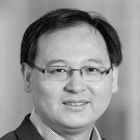 |
| KEYNOTE |
|
 |
| . |
|
|
Xinliang Feng
TU Dresden, Germany
Keynote – Plenary Session
Prof. Feng is a full professor and the head of the Chair of Molecular Functional Materials at Technische Universität Dresden. He has published more than 510 research articles which have attracted more than 62700 citations with H-index of 119 (Google Scholar). He has been awarded several prestigious prizes such as IUPAC Prize for Young Chemists (2009), European Research Council (ERC) Starting Grant Award (2012), Journal of Materials Chemistry Lectureship Award (2013), ChemComm Emerging Investigator Lectureship (2014), Fellow of the Royal Society of Chemistry (FRSC, 2014), Highly Cited Researcher (Thomson Reuters, 2014-2019), Small Young Innovator Award (2017), Hamburg Science Award (2017), EU-40 Materials Prize (2018), ERC Consolidator Grant Award (2018). He is a member of the European Academy of Sciences (2019) and member of the Academia Europaea (2019). He is an Advisory Board Member for Advanced Materials, Chemical Science, Journal of Materials Chemistry A, ChemNanoMat, Energy Storage Materials, Small Methods, Chemistry -An Asian Journal, Trends in Chemistry, etc. He is the Head of ESF Young Research Group "Graphene Center Dresden", Working Package Leader of WP Functional Foams & Coatings for European Commission’s pilot project “Graphene Flagship”, and spokesperson for the DFG Collaborative Research Center for the Chemistry of Synthetic 2D Materials.
|
|
|
|
|
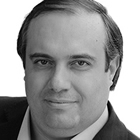 |
| INDUSTRIAL FORUM |
|
 |
| . |
|
|
Andrea Ferrari
Cambridge Graphene Centre, University of Cambridge, UK
Keynote - Industrial Forum
Andrea C. Ferrari earned a PhD in electrical engineering from Cambridge University, after a Laurea in nuclear engineering from Politecnico di Milano, Italy. He is Professor of Nanotechnology and the Director of the Cambridge Graphene Centre and of the EPSRC Centre for Doctoral Training in Graphene Technology. He is Fellow of Pembroke College, the American Physical Society, the Institute of Physics and the Materials Research Society. His research interests include nanomaterials growth, modelling, characterization, and devices. He was awarded the Royal Society Brian Mercer Award for Innovation, the Marie Curie Excellence Award, the Philip Leverhulme Prize, The EU-40 Materials Prize, The Royal Society Wolfson Research Merit Award. He is also the Chairman of the Executive Board of the EU Graphene Flagship
|
|
|
|
|
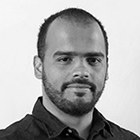 |
| WORKSHOP 4 |
|
 |
| . |
|
|
Jose Hugo García Aguilar
ICN2, Spain
Invited – Workshop 4: Theory of 2D Materials and Devices Simulation
|
|
|
|
|
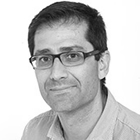 |
| KEYNOTE |
|
 |
| . |
|
|
Jose Antonio Garrido
ICREA/ICN2, Spain
Keynote – Plenary Session
Jose A. Garrido is an ICREA Research Professor at the Catalan Institute of Nanoscience and Nanotechnology (ICN2) and head of the Advanced Electronic Materials and Devices group. He received a master and PhD degree in Telecommunication Engineering from the Polytechnic University of Madrid, and a habilitation degree by the Technical University of Munich. His research interest focuses on aspects of the science and technology of novel electronic materials, with a strong emphasis on 2D materials such as graphene and MoS2, as well as in the application of these materials to bioelectronics and neural interfaces. He participates in major national and European projects and efforts to explore the development of novel neural interfaces for biomedical applications. Jose Garrido is co-founder of INBRAIN Neuroelectronics, where he is now the Chief Scientific Officer.
|
|
|
|
|
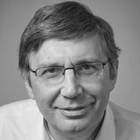 |
| PLENARY |
|
 |
| . |
|
|
Andre Geim
University of Manchester, UK
Plenary Talk
Sir Andre Geim is Regius Professor at the University of Manchester. He was awarded the 2010 Nobel Prize for his groundbreaking work on graphene. He has also received numerous international awards and distinctions, including medals from the Royal Society and the US National Academy of Sciences, and holds honorary doctorates and professorships from many countries and universities. Thomson-Reuters repeatedly named him among the world’s most active scientists and attributed to him three new research fronts – diamagnetic levitation, gecko tape and graphene. More than thirty of his papers have been cited >1,000 times with six of them >10,000 times. He was awarded the 2000 Ig Nobel prize for his work on levitation, becoming the first and only recipient of both Nobel and Ig Nobel Prizes.
|
|
|
|
|
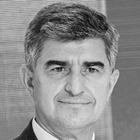 |
| KEYNOTE |
|
 |
| . |
|
|
Yury Gogotsi
Drexel University, USA
Keynote – Plenary Session
Dr. Yury Gogotsi is Distinguished University Professor and Charles T. and Ruth M. Bach Professor of Materials Science and Engineering at Drexel University. He also serves as Director of the A.J. Drexel Nanomaterials Institute. He received his MS (1984) and PhD (1986) from Kiev Polytechnic and a DSc degree from the Ukrainian Academy of Sciences in 1995. His research group works on 2D carbides and nitrides (MXenes), nanostructured carbons, and other nanomaterials for energy, water and biomedical applications. He published more than 800 papers, which have been cited more than 170,000 times. He has been recognized as a Highly Cited Researcher in Chemistry and Materials Science, and a Citations Laureate in Physics by Clarivate Analytics. He has received numerous awards for his research including a Chemistry of Materials Award from ACS, MRS Medal, S. Somiya Award from IUMRS, European Carbon Association Award, Materials Innovation Award from Materials Today, International Nanotechnology Prize (RUSNANOPrize), R&D 100 Awards from R&D Magazine and many other distinctions. He has been elected a Fellow of the European Academy of Sciences, World Academy of Ceramics, AAAS, MRS, ACerS, ECS, RSC and ISE. He holds honorary doctorates from several European universities
|
|
|
|
|
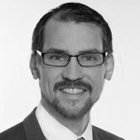 |
| INDUSTRIAL FORUM |
|
 |
| . |
|
|
Stefan Gomes da Costa
WITec GmbH, Ulm, Germany
Invited - Industrial Forum
Stefan Gomes da Costa studied Physics at the University of Stuttgart, Germany, where he obtained his PhD in 2019 for his work in Hyperspectral Coherent Anti-Stokes Raman Scattering (CARS)-Imaging. In 2016 Stefan started to work for WITec, a market leader in the fields of Raman microscopy and correlative Raman-AFM, Raman-SNOM and Raman-SEM (RISE) microscopy. As an Applications Scientist, and from 2020 on as a Senior Applications Scientist, Stefan carried out many imaging system installations and customer trainings, internal and external technical consultations, and was involved in publicly funded projects such as NanoGraM. In 2021 Stefan moved on to a new position within WITec and is now working as Sales Manager. Over 13 years of academic and professional experience, Stefan has built up an extensive knowledge of Raman microscopy
|
|
|
|
|
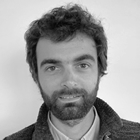 |
| INDUSTRIAL FORUM |
|
 |
| . |
|
|
Stijn Goossens
Qurv, Spain
Invited - Industrial Forum
Dr. Stijn Goossens is CTO and co-founder of Qurv. Stijn is a pioneer in 2D material enhanced quantum dot image sensors and inventor of multiple patents in Qurv’s portfolio. He obtained his PhD from Delft University of Technology and continued his career as a program manager at the Institute of Photonic Sciences before founding Qurv in 2020.
|
|
|
|
|
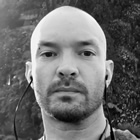 |
| WORKSHOP 1 |
|
 |
| . |
|
|
Roman Gorbachev
The University of Manchester, UK
Invited – Workshop 1: Twistronics, 2D Magnetism and Topological Phenomena
Roman is a Professor of Condensed Matter Physics at University of Manchester. He has obtained PhD in 2009 at the University of Exeter, UK. His research area is optoelectronic properties of 2D material heterostructures with strong emphasis on fabrication of nanoscale low-dimensional devices. He leads ERC consolidator project “Quantum Nanomaterials by Twistronics” and has been named “Highly Cited Researcher” for the last three consecutive years (ranking in the top 1% by citations in the field of Physics by Web of Science).
|
|
|
|
|
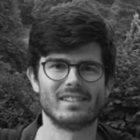 |
| INDUSTRIAL FORUM |
|
 |
| . |
|
|
Benjamin Groven
IMEC, Belgium
Invited - Industrial Forum
Benjamin Groven acts as a research scientist in the Thin Films group at IMEC since February 2019. In that role, he tries to capture insight in the nucleation and growth mechanism of atomically controlled deposition processes for a variety of nano-engineered thin films including transition metal dichalcogenides, and their implementation in future nanoelectronic technologies. From such understanding of the growth behaviour, the morphology, crystallinity and material properties can be controlled. Benjamin Groven obtained a MSc in Applied Physics in 2014 from University of Technology Eindhoven (NL), and his PhD from University of Leuven (KU Leuven, BE) in 2018. Further, he was a visiting researcher at the University of California (USA).
|
|
|
|
|
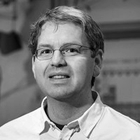 |
| INDUSTRIAL FORUM |
|
 |
| . |
|
|
Kristinn Gylfason
KTH Royal Institute of Technology, Sweden
Invited - Industrial Forum
Assoc. Prof. Kristinn B. Gylfason leads the research group on Photonic Microsystems at the Micro- and Nanosystems Laboratory, KTH Royal Institute of Technology, Stockholm, Sweden. The group is involved in several European research projects focusing on different applications of photonic microsystems, such as MORPHIC on photonic MEMS for telecommunications, and ULISSES and AEOLUS focusing on integrated optical gas sensors. Kristinn received the title of Docent in Micro- and Nanosystems in 2015 and the PhD degree in Electrical Engineering from in 2010 from KTH.
|
|
|
|
|
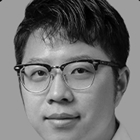 |
| WORKSHOP 1 |
|
 |
| . |
|
|
Zheng Vitto Han
Shanxi University, China
Invited – Workshop 1: Twistronics, 2D Magnetism and Topological Phenomena
Zheng Vitto Han is currently a research professor at the Institute of Opto-Electronics, Shanxi University, where he is the director of the Quantum Transport Laboratory. He got his PhD in Néel Institute in 2013 and did a post-Doc in Columbia University before he returned back to mainland China in 2015. His research mainly focuses on the emerging physical properties of functional materials in mesoscopic sizes, and on further implementing these interesting properties in future applications of nano-assemblies and nanoelectronics.
|
|
|
|
|
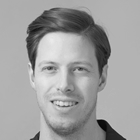 |
| INDUSTRIAL FORUM |
|
 |
| . |
|
|
Oliver Hartwig
Universität der Bundeswehr München, Germany
Invited - Industrial Forum
Oliver Hartwig started his study of Physics in 2011 at the Karlsruhe institute of technology. He obtained his undergraduate degree in 2015. In the same year he moved to Munich to continue his degree in physics at the Technical University of Munich. In 2018 he graduated with a master thesis titled: Towards on-Chip Photon Generation and Detection Using Two-Dimensional Materials Coupled to Plasmonic Waveguides. With his research interest already focusing on materials research he then started his PhD at the Universität der Bundeswehr Munich with the Group of Prof. Georg S. Duesberg. Here, Oliver focusses on the synthesis and characterization of 2D Materials.
|
|
|
|
|
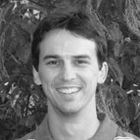 |
| INDUSTRIAL FORUM |
|
 |
| . |
|
|
Nicholas Hendricks
Heidelberg Instruments, Switzerland
Invited - Industrial Forum
|
|
|
|
|
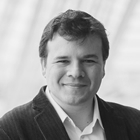 |
| PLENARY |
|
 |
| . |
|
|
Pablo Jarillo-Herrero
MIT, USA
Plenary Talk
Pablo Jarillo-Herrero is currently Cecil and Ida Green Professor of Physics at MIT. He received his “Licenciatura” in physics from the University of Valencia, Spain, in 1999. Then he spent two years at the University of California in San Diego, where he received a M.Sc. degree before going to the Delft University of Technology in The Netherlands, where he earned his Ph.D. in 2005. After a one-year postdoc in Delft, he moved to Columbia University, where he worked as a NanoResearch Initiative Fellow. He joined MIT as an assistant professor of physics in January 2008 and received tenure in 2015. He was promoted to Full Professor of Physics in 2018. His awards include the Spanish Royal Society Young Investigator Award (2006), an NSF Career Award (2008), an Alfred P. Sloan Fellowship (2009), a David and Lucile Packard Fellowship (2009), the IUPAP Young Scientist Prize in Semiconductor Physics (2010), a DOE Early Career Award (2011), a Presidential Early Career Award for Scientists and Engineers (PECASE, 2012), an ONR Young Investigator Award (2013), and a Moore Foundation Experimental Physics in Quantum Systems Investigator Award (2014). Prof. Jarillo-Herrero has been selected as a Highly Cited Researcher by Clarivate Analytics-Web of Science (2017-present), and was elected APS Fellow (2018), Fellow of the Quantum Materials Program of the Canadian Institute for Advanced Research (CIFAR, 2019), and Member at Large of the APS Division of Condensed Matter Physics (2019). Prof. Jarillo-Herrero is the recipient of the APS 2020 Oliver E. Buckley Condensed Matter Physics Prize, the 2020 Wolf Prize in Physics, the 2020 Medal of the Spanish Royal Physics Society, the 2021 Lise Meitner Distinguished Lecture and Medal, and the 2021 US National Academy of Sciences Award for Scientific Discovery.
|
|
|
|
|
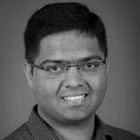 |
| INDUSTRIAL FORUM |
|
 |
| . |
|
|
Deep Jariwala
University of Pennsylvania, USA
Keynote - Industrial Forum
Deep Jariwala is an Assistant Professor in the Department of Electrical and Systems Engineering at the University of Pennsylvania (Penn). Deep completed his undergraduate degree in Metallurgical Engineering from the Indian Institute of Technology Banaras Hindu University and his Ph.D. in Materials Science and Engineering at Northwestern University. Deep was a Resnick Prize Postdoctoral Fellow at Caltech before joining Penn to start his own research group. His research interests broadly lie at the intersection of new materials, surface science and solid-state devices for computing, opto-electronics and energy harvesting applications in addition to the development of correlated and functional imaging techniques. Deep’s research has been widely recognized with several awards from professional societies, foundations and funding agencies as well as cited > 14000 times.
|
|
|
|
|
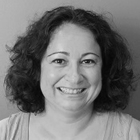 |
| WORKSHOP 3 |
|
 |
| . |
|
|
Catherine Journet-Gautier
Université Claude Bernard Lyon 1 / CNRS, France
Invited – Workshop 3: Chemistry of 2DM and Energy
Prof. Catherine Journet is Full Professor at the Laboratory of Multimaterials and Interfaces from the University of Lyon (FR). She is leading the research group on “low-dimensionality materials” whose main activities are related to the synthesis of micro- and nanostructures, the study of the interfaces structuration during synthesis, and the physico-chemical properties of the fabricated materials. She is among the pioneering scientists in the nanotube field and an expert in the synthesis techniques of C and BN 1D and 2D nanostructures. She received her PhD in 1998 from the University of Montpellier (FR) about the "Production of Carbon Nanotubes". After a post-doctoral position at the Max-Planck-Institute for Solid State Research in Stuttgart (DE) in the group of K. von Klitzing, she joined the University of Lyon as an Assistant Professor in 1999. Currently, she is involved in the synthesis of BN-based 2D materials and heterostructures. She is author of about ~ 80 scientific peer-reviewed papers for a total of more than 8000 citations.
|
|
|
|
|
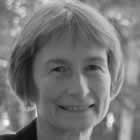 |
| WORKSHOP 6 |
|
 |
| . |
|
|
Ute Kaiser
Ulm University, Germany
Invited – Workshop 6: Advanced Characterization of 2DM and heterostructures
Ute Kaiser is head of the Materials Science Electron Microscopy Facility at Ulm University, Germany. She received her doctoral degree from the Institute of Physics at Humboldt University Berlin, in 1993 and her habilitation in experimental physics from the Friedrich Schiller University Jena, in 2002, working on thin SiC films and low-dimensional structures in SiC using advanced transmission electron microscopy. Since 2004 she is a full professor at Ulm University. Currently, her main focus is the development of high-resolution low-voltage transmission electron microscopy for understanding properties of low-dimensional materials from the scale of single atoms.
|
|
|
|
|
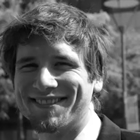 |
| WORKSHOP 4 |
|
 |
| . |
|
|
Dante Kennes
RWTH Aachen University, Germany
Invited – Workshop 4: Theory of 2D Materials and Devices Simulation
Dante Kennes received his Ph.D. in 2014 from RWTH Aachen University. Afterwards he has received a competitive two-year fellowship from the DFG to perform research on nonequilibrium phase transitions in Andrew Millis' group at Columbia University in the city of New York. After this postdoctoral research time he moved to the Freie University Berlin in January of 2018. During his postdoctoral time he was offered a group leader position at the Max Planck Institute for the Structure and Dynamics of Matter. At the same time in October 2019 he was offered a professorship of physics at the RWTH Aachen University and since remains a guest scientist at the former Max Planck Institute.
|
|
|
|
|
 |
| INDUSTRIAL FORUM |
|
 |
| . |
|
|
Harm Knoops
Oxford Instruments, UK
Invited - Industrial Forum
Dr Harm Knoops is the Atomic Scale Segment Specialist at Oxford Instruments Plasma Technology and holds a part-time assistant professorship position at the Eindhoven University of Technology. His work covers the fields of (plasma-based) synthesis of thin films, advanced diagnostics and understanding and developing plasma ALD, plasma ALE and growth of 2D materials. His main goals are to improve and advance atomic scale processes and applications for Oxford Instruments and its customers.
|
|
|
|
|
 |
| INVITED |
|
 |
| . |
|
|
Steven Koester
University of Minnesota, USA
Invited – Plenary Session
Dr. Steven Koester is the Russell J. Penrose Professor of Nanotechnology at the University of Minnesota. He received the Ph.D. in 1995 from the University of California, Santa Barbara. From 1997 to 2010, he was a research staff member at the IBM T. J. Watson Research Center and performed research on a wide variety of electronic and optoelectronic devices, with an emphasis on those utilizing the Si/SiGe material system. From 2006 to 2010 he served as manager of Exploratory Technology at IBM Research where his team investigated advanced devices and integration concepts for use in future generations of microprocessor technology. Since 2010, Dr. Koester has been a Professor of Electrical & Computer Engineering at the University of Minnesota where his research focuses on novel electronic, photonic, spintronic and sensing device concepts with an emphasis on graphene and other 2D materials. Dr. Koester has authored or co-authored over 300 technical publications and conference presentations, 7 volumes, 4 book chapters, and holds 72 United States patents. He is a Fellow of the IEEE and Optica.
|
|
|
|
|
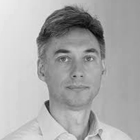 |
| WORKSHOP 4 |
|
 |
| . |
|
|
Andor Kormányos
Eötvös Loránd University, Hungary
Invited – Workshop 4: Theory of 2D Materials and Devices Simulation
Andor Kormányos is a lecturer at the Eötvös Loránd University in Budapest, Hungary. He obtained his PhD from Eötvös Loránd University and was a postdoctoral researcher at Lancaster University (UK) and University of Konstanz (Germany). In recent years he worked on problems related to the electronic properties of monolayer and bilayer transition metal dichalcogenides (TMDCs). His current research interests include the theory of induced spin-orbit coupling in graphene/TMDC structures and non-local Andreev reflection in graphene/superconductor systems.
|
|
|
|
|
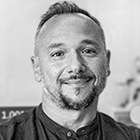 |
| WORKSHOP 5 |
|
 |
| . |
|
|
Kostas Kostarelos
University of Manchester / ICN2, UK / Spain
Invited – Workshop 5: 2DM for Health & Medical Applications
Prof. Kostas Kostarelos read Chemistry at the University of Leeds and obtained his Diploma in Chemical Engineering and his PhD from the Department of Chemical Engineering at Imperial College London, studying the steric stabilization of liposomes using block copolymer molecules.
Currently, Kostarelos is Professor and Chair of Nanomedicine at the Faculty of Biology, Medicine and Health, leads the Nanomedicine Lab and is a member of the National Graphene Institute and the Manchester Cancer Research Centre, all at the University of Manchester. He has been invited to Fellowships with the Royal Society of Chemistry, Royal Society of Medicine and Royal Society of Arts, all in the UK. He was awarded the Japanese Society for the Promotion of Science (JSPS) Professorial Fellowship in 2010.
In 2019 he joined the ICN2 as Severo Ochoa Distinguished Professor and Group Leader, while retaining his appointments and research team at the University of Manchester.
|
|
|
|
|
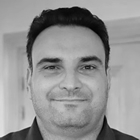 |
| WORKSHOP 3 |
|
 |
| . |
|
|
Emmanuel Kymakis
Hellenic Mediterranean University, Greece
Invited – Workshop 3: Chemistry of 2DM and Energy
Emmanuel Kymakis is a Full Professor at the Department of Electrical and Computer Engineering at the Hellenic Mediterranean University (HMU) and Vice President of the HMU Research Center. He earned his PhD in electrical engineering from the University of Cambridge in 2003. His multidisciplinary research lies at the interface between nanotechnology and electrical engineering and is centered on the development of printed electronic and photovoltaic devices. He was named as a ChemComm Emerging Investigator and served as a member of the founding GA of HFRI. Ηe is also included in the list of the top 2% of scientists in their respective fields by citation impact. He is currently the Director of the interinstitutional Post-Graduate Program “Nanotechnology for Energy Applications” and serves as the work package leader of Energy Generation of the EU FET-Flagship Initiative Graphene.
|
|
|
|
|
 |
| INDUSTRIAL FORUM |
|
 |
| . |
|
|
Mario Lanza
KAUST, Saudi Arabia
Keynote - Industrial Forum
Mario Lanza is an Associate Professor of Materials Science and Engineering at the King Abdullah University of Science and Technology (KAUST), in Saudi Arabia since October 2020. Dr. Lanza got his PhD in Electronic Engineering with honors in 2010 at Universitat Autonoma de Barcelona. During the PhD he was a visiting scholar at The University of Manchester (UK) and Infineon Technologies (Germany). In 2010-2011 he was NSFC postdoc at Peking University, and in 2012-2013 he was Marie Curie postdoc at Stanford University. On October 2013 he joined Soochow University as Associate Professor, and in March 2017 he was promoted to Full Professor. Prof. Lanza has published over 120 research papers, including Science, Nature Electronics, Nature Chemistry, and IEDM, edited a book for Wiley-VCH, and registered four patents (one of them granted with 5.6 Million CNY). Prof. Lanza has received the 2017 Young Investigator Award from Microelectronic Engineering (Elsevier), and the 2015 Young 1000 Talent award (among others), and in 2019 he was appointed as Distinguished Lecturer of the Electron Devices Society (IEEE-EDS). Prof. Lanza is Associate Editor of Scientific Reports (Nature) and Microelectronic Engineering (Elsevier), and serves in the board of many others, like Advanced Electronic Materials (Wiley-VCH), Nanotechnology and Nano Futures (IOP). He is also an active member of the technical committee of several world-class international conferences, including IEEE-IEDM, IEEE-IRPS, IEEE-IPFA and APS. Prof. Lanza leads a research group formed by 10-15 PhD students and postdocs, and they investigate how to improve electronic devices using 2D materials, with special emphasis on two-dimensional (layered) dielectrics and memristors for non-volatile digital information storage and artificial intelligence computing systems.
|
|
|
|
|
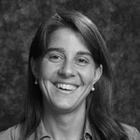 |
| KEYNOTE |
|
 |
| . |
|
|
Alessandra Lanzara
University of California, Berkeley, USA
Keynote – Plenary Session
Alessandra Lanzara is a Professor of Physics at the University of California, Berkeley and Faculty Scientist at the Materials Sciences Division of the Lawrence Berkeley National Laboratory, since 2002. Lanzara received her Laurea (1994) and PhD in Physics (1999) from the University of Rome La Sapienza and was a Della Riccia Fellow and an LBL Fellow in Physics at Stanford University (1999-2002). She is leading the Ultrafast Materials Sciences Program at the Lawrence Berkeley National Laboratory and is a recognized world leader in the study of dynamical properties of quantum materials. She has co-authored over 150 publications and two book chapters. She has developed new technologies for the growth of graphene thin films and for the detection of spin in materials with time and momentum resolution and holds three international patents.
|
|
|
|
|
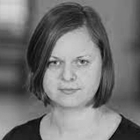 |
| INDUSTRIAL FORUM |
|
 |
| . |
|
|
Rasuole Lukose
IHP, Germany
Invited - Industrial Forum
R. Lukose graduated Batchelor and Master studies in Chemistry Department of Vilnius University in Lithuania. After Master studies she continued her scientific research in Leibniz-Institute for Crystal Growth (IKZ) Berlin, Germany. The research was focused on epitaxial growth of thin oxide films by metal-organic chemical vapour deposition method. She received her PhD degree from Humboldt University Berlin. In 2017 R. Lukose received Individual Marie-Skłodowska-Curie fellowship and did research on development of perovskite-graphene magnetic field sensors at the Center for Physical Sciences and Technology in Vilnius, Lithuania. In 2019 R. Lukose joined Innovations for High Performance Microelectronics Institute (IHP) in Frankfurt/Oder and currently is working on wafer-scale integration of graphene in 200 mm semiconductor pilot line.
|
|
|
|
|
 |
| INDUSTRIAL FORUM |
|
 |
| . |
|
|
Miika Mattinen
Eindhoven University of Technology, The Netherlands
Invited - Industrial Forum
Miika Mattinen obtained his PhD (2020) and MSc (2015) degrees in inorganic chemistry from University of Helsinki. His doctoral research focused on synthesis of two-dimensional transition metal dichalcogenide (TMDC) thin films by atomic layer deposition (ALD). As a postdoc in Eindhoven University of Technology, he is working on developing low-temperature plasma-enhanced ALD processes for TMDC thin films, defect engineering of TMDCs by plasma treatments, and improving understanding and performance of TMDC electrocatalysts.
|
|
|
|
|
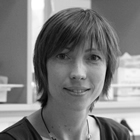 |
| WORKSHOP 5 |
|
 |
| . |
|
|
Cécilia Ménard-Moyon
CNRS, France
Invited – Workshop 5: 2DM for Health & Medical Applications
Dr. Cécilia Ménard-Moyon obtained her PhD in 2005 at Commissariat à l’Energie Atomique et aux Energies Alternatives (CEA)/Saclay (France). After a 1-year postdoc at the University of York (UK) and 18 months in a company in Belgium (Nanocyl SA), she joined CNRS as Research Associate in 2008 in the Laboratory of Immunology, Immunopathology and Therapeutic Chemistry in Strasbourg (France). In 2021 she was promoted CNRS Research Director. Her research interests are focused on the functionalization of carbon-based nanomaterials and 2D materials for biomedical applications, the self-assembly of amino acid derivatives and peptides, as well as the formation of hydrogels for on-demand drug delivery. She has published 98 articles and 10 book chapters (h-index: 42, > 4100 citations). She is the coordinator of the Horizon Europe Marie Skłodowska-Curie Actions Doctoral Networks MELOMANES project on the synthesis of multifunctional magnetic nanoparticles for combination therapy to treat metastatic melanoma
|
|
|
|
|
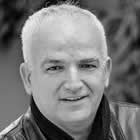 |
| WORKSHOP 5 |
|
 |
| . |
|
|
Arben Merkoci
ICREA-ICN2, Spain
Invited – Workshop 5: 2DM for Health & Medical Applications
Arben Merkoçi is currently ICREA Professor and director of the Nanobioelectronics & Biosensors Group at Institut Català de Nanociencia i Nanotecnologia (ICN2), a BIST centre situated at Autonomous University of Barcelona (UAB) campus (Bellaterra, Barcelona). After his PhD (1991) at Tirana University, in the topic of Ion-Selective-Electrodes (ISEs) designs and applications in clinical and environmental analysis, Dr. Merkoçi worked as postdoc at other European research centres and USA in the field of nanobiosensors and lab-on-a-chip technologies. His postdoc periods were followed by leading positions in several laboratories: (1997-2006) at Autonomous University of Barcelona and since 2006 in ICN2.
|
|
|
|
|
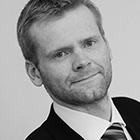 |
| WORKSHOP 2 |
|
 |
| . |
|
|
Steffen Michaelis de Vasconcellos
University of Münster, Germany
Invited – Workshop 2: 2D materials for Quantum Technologies
Steffen Michaelis de Vasconcellos received his PhD from the University of Paderborn. After his postdoc stay at the Laboratoire de Photonique et de Nanostructure (CNRS), Marcoussis, France, he moved to Chemnitz University of Technology. Currently, he is a senior scientist at the University of Münster. His research area is the experimental study of the light-matter interaction in low-dimensional semiconductor nanostructures. In the focus of his work are the ultrafast exciton dynamics in 2D materials, the coherent control of localized quantum systems and single-photon emitters.
|
|
|
|
|
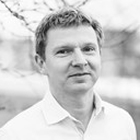 |
| INDUSTRIAL FORUM |
|
 |
| . |
|
|
Frank Niklaus
KTH Royal Institute of Technology, Sweden
Invited - Industrial Forum
Dr. Frank Niklaus received his M.Sc. degree in mechanical engineering in 1998 from the Technical University of Munich (TUM), Germany. In 2002 he received his PhD degree in microelectromechanical systems (MEMS) from KTH Royal Institute of Technology in Stockholm, Sweden. Since 2013 he is a Professor with the Department of Micro and Nanosystems at KTH, where he is heading the Micro and Nanosystem Integration Group. The current research interests of Dr. Niklaus include innovative manufacturing, integration, and packaging technologies for MEMS and nanoelectromechanical systems (NEMS) and graphene-based NEMS devices. He has published more than 200 journal and conference papers and has more than 10 granted patents. Dr. Niklaus is a member of the Young Academy of Europe (YAE) and IEEE Senior Member.
|
|
|
|
|
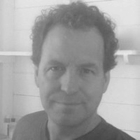 |
| INDUSTRIAL FORUM |
|
 |
| . |
|
|
Kevin O'Brien
Intel, USA
Keynote - Industrial Forum
Kevin P. O'Brien received the B.A. degree in physics and mathematics from the University of Chicago, followed by a Ph.D. degree in condensed matter physics from the University of Illinois at Urbana-Champaign in 1997. He is now an Intel Components Research Engineer in the Novel Memory and Device group. He focuses on device integration of novel materials. With a diverse history such as SOT/STTM MRAM, RF/VR magnetics, CNT transistors, and BEOL interconnects. He holds more than 100 U.S. patents and has coauthored more than 20 technical papers in peer reviewed journals.
|
|
|
|
|
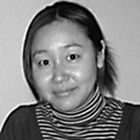 |
| WORKSHOP 6 |
|
 |
| . |
|
|
Hanako Okuno
CEA, France
Invited – Workshop 6: Advanced Characterization of 2DM and heterostructures
Hanako OKUNO graduated with a Master Degree in Materials Science and engineering from Tokyo Institute of Technology in 1999. She received PhD in Materials Science from Louvain catholic University in Belgium, entitled “Synthesis and characterization of carbon based materials” in 2006. She worked in advanced microscopy to develop quantitative chemical atomic resolution imaging on semiconductor during her post-doc fellows at NIMS in Japan and CEA in France and then joined CEA LITEN in 2009 where she worked on the integration of CNTs in microelectronic device applications. Since 2012, she has been working in Laboratory of advanced electron microscopy in CEA INA, whereas she specializes advanced microscopy for two-dimensional material study using low-voltage aberration corrected TEM techniques.
|
|
|
|
|
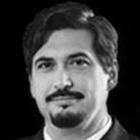 |
| INVITED |
|
 |
| . |
|
|
Barbaros Ozyilmaz
NUS, Singapore
Invited – Plenary Session
Head of Department, Department of Materials Science and Engineering, NUS, 2019 – current
Deputy Director, Centre for Advanced 2D Materials, NUS, 2016 - current
Professor, Department of Materials Science and Engineering, NUS, 2015 – current
Head of Graphene Research, Centre for Advanced 2D Materials,
Professor, Department of Physics, NUS, 2013 – current
Assistant Professor, Department of Physics, NUS , 2007 – 2013
PostDoc, Columbia University, 2005-2007.
Ph.D. New York University 2005.
Dipl.-Phys., RWTH AACHEN, 1999.
|
|
|
|
|
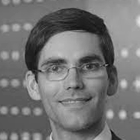 |
| KEYNOTE |
|
 |
| . |
|
|
Tomas Palacios
MIT, USA
Keynote – Plenary Session
Tomás Palacios is a Professor in the Department of Electrical Engineering and Computer Science at MIT. His current research focuses on demonstrating new electronic devices and applications for novel semiconductor materials such as graphene and MoS2. His work has been recognized with multiple awards including the Presidential Early Career Award for Scientists and Engineers, the 2012 and 2019 IEEE George Smith Award, and the NSF, ONR, and DARPA Young Faculty Awards, among many others. Prof. Palacios is the founder and director of the MIT MTL Center for Graphene Devices and 2D Systems, as well as the Chief Advisor and co-founder of Cambridge Electronics, Inc. He is a Fellow of IEEE.
|
|
|
|
|
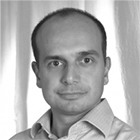 |
| WORKSHOP 3 |
|
 |
| . |
|
|
Vincenzo Palermo
CNR-ISOF, Italy
Invited – Workshop 3: Chemistry of 2DM and Energy
Vincenzo Palermo obtained his Ph.D. in physical chemistry in 2003 at the University of Bologna, after working at the University of Utrecht (the Netherlands) and at the Steacie Institute, National Research Council (Ottawa, Canada). He has published more than 130 scientific articles on international journals in chemistry, nanotechnology and materials science (>4000 citations, h-index=35). Vincenzo Palermo holds a joint position as research director of the National Reseach Council of Italy, and research professor at Chalmers University of Technology in Gothenburg, Sweden, acting as vice-director of the Graphene Flagship. Between 2013 and 2017 he has been the leader of the work package on composites of the flagship. He previously coordinated two large European research projects: GOSPEL (Graphene-Organic SuPramolEcular functionaL composites) and the International Training Network GENIUS (GraphenE-orgaNIc hybrid architectures for organic electronics: a mUltiSite training action), and was member of the scientific committee of EUROGRAPHENE programme of the ESF. In 2012 Vincenzo Palermo won the Lecturer Award for Excellence of the Federation of European Materials Societies (FEMS) and in 2013 the Research Award of the Italian Society of Chemistry (SCI).
|
|
|
|
|
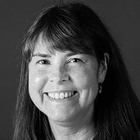 |
| INDUSTRIAL FORUM |
|
 |
| . |
|
|
Joan M. Redwing
The Pennsylvania State University, USA
Invited - Industrial Forum
Dr. Joan Redwing is a Distinguished Professor of Materials Science and Engineering and Electrical Engineering at Penn State University. She currently serves as director of the 2D Crystal Consortium Materials Innovation Platform (2DCC-MIP) at Penn State, an NSF supported user facility focused on advancing the synthesis and characterization of 2D layer chalcogenides for next generation devices. Prof. Redwing received her Ph.D. in Chemical Engineering from the University of Wisconsin-Madison and worked as a research engineer and manager at Epitronics Inc. prior to joining Penn State in 2000. She is an expert on epitaxial growth of compound semiconductors by metalorganic chemical vapor deposition. Prof. Redwing is an associate editor for the Journal of Crystal Growth and is the North American regional editor for 2D Materials. She has authored or co-authored over 300 publications, holds 8 U.S. patents and is a Fellow of MRS, APS and AAAS.
|
|
|
|
|
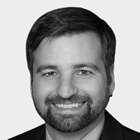 |
| INDUSTRIAL FORUM |
|
 |
| . |
|
|
Gordon Rinke
AMO GmbH, Germany
Invited - Industrial Forum
Dr Gordon Rinke obtained his PhD in Materials Science from the EPFL Lausanne, Switzerland in 2013. After spending over 6 years in the industry for an organic semiconductor tool manufacturer as a lead process engineer, he joined the AMO GmbH in Aachen, Germany in 2021 as Project Manager for the European 2D Experimental Pilot Line Project and became deputy of the graphene electronics group. His background covers the nanostructure growth and fabrication of organic and inorganic materials and the process development and optimization of prototype machines.
|
|
|
|
|
 |
| INDUSTRIAL FORUM |
|
 |
| . |
|
|
Henrik Rödjegård
Senseair, Sweden
Invited - Industrial Forum
Henrik Rödjegård has the vision “Air sensors for everyone, everywhere”. He is managing the Ulisses project turning this vision into reality using integrated optics, machine learning, graphene components and cloud connected demonstration environments. Henrik has been working at the gas sensor producer Senseair AB since 2006 and is now the CTO and Research Manager. He has been working with MEMS sensors and sensor electronics since 1997, with a Ph.D. in Solid State Electronics from Chalmers University in Sweden 2005. Since 2017 he is also an Adjunct Professor in Electronics Design at Mid-Sweden University in Sundsvall, Sweden.
|
|
|
|
|
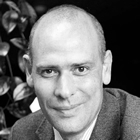 |
| WORKSHOP 3 |
|
 |
| . |
|
|
Paolo Samorì
Université de Strasbourg, France
Invited – Workshop 3: Chemistry of 2DM and Energy
Paolo Samorì is Distinguished Professor at the Université de Strasbourg, Director of the Institut de Science et d’Ingénierie Supramoléculaires (ISIS) and Director of the Nanochemistry Laboratory. He is Foreign Member of the Royal Flemish Academy of Belgium for Science and the Arts (KVAB), Fellow of the Royal Society of Chemistry (FRSC), Fellow of the European Academy of Sciences (EURASC), Member of the Academia Europaea, Member of the European Academy of Sciences and Arts, Fellow of International Engineering and Technology Institute (IETI), Socio corrispondente, Sezione di Scienze Matematiche, Fisiche e Naturali ; Accademia Nazionale di Scienze Lettere e Arti di Modena, Fellow of the Materials Research Society (MRS), Fellow of the University of Strasbourg Institute for Advanced Study (USIAS), Senior Member of the Institut Universitaire de France (IUF). He has obtained a Laurea (master’s degree) in Industrial Chemistry at University of Bologna in 1995. In 2000, he has received his PhD in Chemistry from the Humboldt University of Berlin (Prof. J. P. Rabe). He has been permanent research scientist at Istituto per la Sintesi Organica e la Fotoreattività of the Consiglio Nazionale delle Ricerche of Bologna from 2001 to 2008 and Visiting Professor at ISIS from 2003 to 2008. He has published 400+ papers on nanochemistry, supramolecular sciences, materials chemistry, and scanning probe microscopies with a specific focus on graphene and other 2D materials as well as functional organic/polymeric and hybrid nanomaterials for application in optoelectronics, energy and sensing. He has been awarded numerous prestigious prizes, including the E-MRS Graduate Student Award (1998), the MRS Graduate Student Award (2000), the IUPAC Prize for Young Chemists (2001), the Vincenzo Caglioti Award (2006), the Nicolò Copernico Award (2009), the Guy Ourisson Prize (2010), the ERC Starting Grant (2010), the CNRS Silver Medal (2012), the Catalán-Sabatier Prize (2017), the Grignard-Wittig Lectureship (2017), the ERC Proof of Concept Grant (2017), the RSC Surfaces and Interfaces Award (2018), the Blaise Pascal Medal in Materials Science (2018), the Pierre Süe Prize (2018), the ERC Advanced Grant (2019), the “Étoiles de l’Europe” Prize (2019), the ERC Proof of Concept Grant (2020) and the RSC/SCF Joint Lectureship in Chemical Sciences (2020). He is Associate Editor of Nanoscale and Nanoscale Advances (RSC) and Member of the Advisory Boards of Advanced Materials, Small, ChemNanoMat, ChemPhysChem, ChemPlusChem, ChemSystemsChem and SmartMat (Wiley-VCH), Chemical Society Reviews, Nanoscale Horizons, Chemical Communications and Journal of Materials Chemistry (RSC), ACS Nano and ACS Omega (ACS), and BMC Materials (Springer Nature).
|
|
|
|
|
 |
| INDUSTRIAL FORUM |
|
 |
| . |
|
|
Simon Sawallich
Protemics, Germany
Invited - Industrial Forum
Simon Sawallich received the Diploma degree in solid-state physics from RWTH Aachen University, Germany in 2012. During his studies, he gained further experience in the application of Terahertz (THz) technologies at ENS Paris. After graduating in May 2012, he co-founded Protemics, where since 2021, he is chief technology officer and in charge of analytic services and THz system development. His research interests lie in THz near-field micros¬copy and THz based sensing applications for material inspection and device characterization
|
|
|
|
|
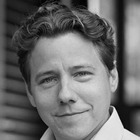 |
| WORKSHOP 3 |
|
 |
| . |
|
|
Grégory Schneider
Leiden University, The Netherlands
Invited – Workshop 3: Chemistry of 2DM and Energy
|
|
|
|
|
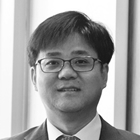 |
| INVITED |
|
 |
| . |
|
|
Hyeon Suk Shin
UNIST, South Korea
Invited – Plenary Session
Hyeon Suk Shin is a professor at Department of Chemistry, Ulsan National Institute of Science and Technology (UNIST), Korea. He received his PhD from Department of Chemistry at POSTECH in 2002. After working as a postdoctoral fellow at University of Cambridge, UK and subsequently as a research Professor at POSTECH, he joined UNIST in 2008. He received 'Top 100 National R&D Outstanding Achievements' (Ministry of Science and ICT) in 2021, Sigma-Aldrich Excellent Chemist Award (Korean Chemical Society) in 2021, Basic Researcher of the Year award (Ministry of Science and ICT, Republic of Korea) in 2020, Creative Knowledge Award (Minster Award by Ministry of Science, ICT, and Future Planning) in 2015, outstanding researcher award (Materials Chemistry Division, KCS) in 2015, the Faculty of the Year award of UNIST in 2014, and the Minister award of Ministry of Knowledge Economy, Korea in 2012. His current research is focused on 2D materials, including graphene, h-BN, transition metal dichalcogenides, and their heterostructures, and their applications for electrocatalysts and (opto)electronic devices
|
|
|
|
|
 |
| WORKSHOP 6 |
|
 |
| . |
|
|
Marianna Sledzinska
ICN2, Spain
Invited – Workshop 6: Advanced Characterization of 2DM and heterostructures
Marianna Sledzinska received PhD in Physics from Universitat Autónoma de Barcelona in 2012. She works as research engineer in the Phononic and Photonic Nanostructure (P2N) group in Catalan Institute of Nanoscience and Nanotechnology, investigating phonons and thermal transport in the nanoscale. She was a visiting researcher in Massachusetts Institute of Technology (2019), University of Poznan, Poland (2018) and Teer Coatings, Miba Group, UK (2017-2018). Within the P2N group she leads the Quantum 2D materials team, focused on growth and characterization of 2D transition metal dichalcogenides. Her research interests cover thermal transport, elastic properties strain effects, fracture and phonon-electron interactions in 2D materials, such as transition metal dichalcogenides, boron nitride or graphene.
|
|
|
|
|
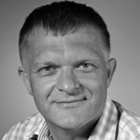 |
| INVITED |
|
 |
| . |
|
|
Jurgen Smet
MPI-FKF, Germany
Invited – Plenary Session
Jurgen Smet joined the Max-Planck Institute for Solid State Research in 1994. He currently heads the Solid State Nanophysics group. He received an MS degree in engineering from the Catholic University of Leuven and a PhD degree in Electrical Engineering and Computer Science from the Massachussets Institute of Technology. His research focuses on correlated ground states in two-dimensional electron systems carved out of conventional semiconductor heterostructure or van der Waals heterostructures. He is a recipient of the Walter Schottky Prize (2003) and the Edison Volta Prize (2020) of the European Physical Society.
|
|
|
|
|
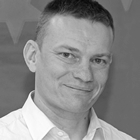 |
| INDUSTRIAL FORUM |
|
 |
| . |
|
|
Christoph Stampfer
RWTH Aachen University and Forschungszentrum Jülich, Germany
Invited - Industrial Forum
Head of research group in experimental solid-state physics at the RWTH Aachen University. Research focus in graphene and 2D materials as well as quantum devices and applications of quantum technology. Additional interest in science education, developments in micro and nano-technology as well as quantum science and technology.
|
|
|
|
|
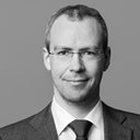 |
| INDUSTRIAL FORUM |
|
 |
| . |
|
|
Stephan Suckow
AMO GmbH, Germany
Invited - Industrial Forum
Stephan Suckow obtained his B.Sc. and M.Sc. in Physics of Semiconductor Technology from the BTU Cottbus, Germany, and his PhD in Physics from RWTH Aachen University in 2012 on the simulation of photonic silicon nanostructures. He joined AMO in 2015, became the vice head of the Nanophotonics group in 2018 and is leading the group since 2022. He coordinates the H2020 project POSEIDON, is the technical manager of the H2020 Project GRACED and coordinates the work at AMO for several other national and European funded projects
|
|
|
|
|
 |
| INDUSTRIAL FORUM |
|
 |
| . |
|
|
Agnès Tempez
HORIBA FRANCE SAS, France
Invited - Industrial Forum
Agnès Tempez is an application market specialist for the advanced materials/semiconductors market at HORIBA France. She is part of the Nanoscopy team to develop AFM-Raman applications. She is also PP-TOFMS product manager. She holds a Ph.D. in Analytical Chemistry from the University of Houston, Texas. She worked as a research scientist at Ionwerks Inc., Houston to develop time of flight mass spectrometry instrumentation for materials characterization and MALDI/ion mobility coupling for complex biological samples.
|
|
|
|
|
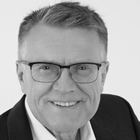 |
| INDUSTRIAL FORUM |
|
 |
| . |
|
|
Peter Thiesen
Accurion GmbH, Germany
Invited - Industrial Forum
Application specialist Imaging Ellipsometry since 2006 (Nanofilm, Accurion GmbH), Habilitation, Helmut-Schmidt-University, Hamburg (2005), Doktor Natural Sciences, CAU Kiel (1997), Dipl. Chem. Colloid and surface chemistry CAU Kiel (1993), (Ph.D.).
|
|
|
|
|
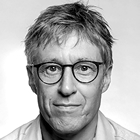 |
| INDUSTRIAL FORUM |
|
 |
| . |
|
|
John Tingay
Paragraf Limited, UK
Invited - Industrial Forum
John has led development of capital equipment in the semiconductor and electronics industries for over two decades, spanning across wide-ranging technology areas from front end to packaging applications with Leica Microsystems and Nordson. In these positions, John has been responsible for bringing novel technologies and processes to the industry and supporting the introduction of products by top tier consumer electronics companies. His experience of the business and technology acquisition process from a multinational corporate viewpoint has led John to hold several non-executive positions in high technology companies within in the semiconductor and advanced imaging markets. John has also worked in the development of systems for particle accelerators and Synchrotron physics with Oxford Instruments, after starting his career in consulting engineering.
|
|
|
|
|
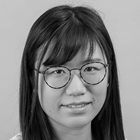 |
| WORKSHOP 2 |
|
 |
| . |
|
|
Chuyao Tong
ETH Zürich, Switzerland
Invited – Workshop 2: 2D materials for Quantum Technologies
Born in Shanghai, China, Chuyao obtained her B.A., M.Sc., and M.A. in Physics (Natural Sciences Tripos) from the University of Cambridge (Christ’s college) in 2018. She is currently a PhD student in the Nanophysics Group of Prof. Klaus Ensslin and Prof. Thomas Ihn at ETH Zurich. Her work evolves around quantum transport phenomena in electrostatically defined bilayer graphene quantum dots.
|
|
|
|
|
 |
| INDUSTRIAL FORUM |
|
 |
| . |
|
|
Richard Van Rijn
Applied Nanolayers B.V., The Netherlands
Invited - Industrial Forum
Richard van Rijn obtained his PhD (2012) and a cum laude MSc (2007) in physics from Leiden University. He performed PhD research in Leiden and at the European Synchrotron Radiation Facility in Grenoble. There he developed and implemented an experimental system for surface X-ray diffraction studies of heterogeneous catalysis and surface chemistry. He is (co-)author of 14 peer reviewed scientific articles in applied physics and physical chemistry. He has attended over 10 research conferences, several as invited speaker. Richard helped to commercialise the SXRD reactor via Leiden probe Microscopy BV. After his PhD, he returned to Leiden to work on scaling up graphene production and shortly after co-founded Applied Nanolayers, where he is currently CTO.
|
|
|
|
|
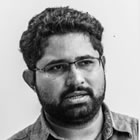 |
| WORKSHOP 3 |
|
 |
| . |
|
|
Aravind Vijayaraghavan
The University of Manchester, UK
Invited – Workshop 3: Chemistry of 2DM and Energy
Aravind Vijayaraghavan is Professor of Nanomaterials at The University of Manchester, where he leads the Nanofunctional Materials Group. His research focuses on the development of novel applications of 2-dimensional materials and the underpinning science. He has published over 100 papers in international journals, filed 7 patents and established 2 spin-out companies, Grafine Ltd and Atomic Mechanics Ltd. He is also the faculty Head of Business Engagement in Advanced Manufacturing.
|
|
|
|
|
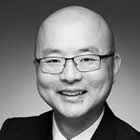 |
| INDUSTRIAL FORUM |
|
 |
| . |
|
|
Zhenxing Wang
AMO, Germany
Invited - Industrial Forum
Dr. Zhenxing Wang, head of the Graphene Electronics Group at AMO GmbH, has a PhD from Peking University on radio-frequency electronics based on graphene and carbon nanotubes, and a Post-Doc at the University of Erlangen-Nuremberg, where he worked on solution based 2D materials. From 2014 he has been with AMO, where he is responsible for development of graphene based electronics, especially for high frequency applications, as well as on the wafer scale integration of graphene material. He is principle investigator in different German national projects on graphene and 2-dimensional materials based devices, such as HiPeDi and MOSTFLEX funded by the DFG. He has been managing different EU-projects from AMO side, including the Graphene Flagship, 2D-EPL, the FTI project G-Imager, ULTRAPHO, and the FET-Open project WiPLASH, MISEL, GreEnergy and so on.
|
|
|
|
|
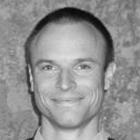 |
| WORKSHOP 6 |
|
 |
| . |
|
|
Neil Wilson
University of Warwick, UK
Invited – Workshop 6: Advanced Characterization of 2DM and heterostructures
I graduated from the Natural Sciences Tripos at Pembroke College Cambridge in 1999. I won a Thouron scholarship to study for a Masters in Physics at the University of Pennsylvania, working with Professors Charlie Kane and Gene Mele on the theory behind STM images of individual quantum states in short carbon nanotubes. I returned to the UK in 2000 for a PhD with Boris Muzykantskii and David Cobden. I completed my PhD in the Physics Department of the University of Warwick in 2004, graduating in 2005. My PhD thesis on "Electronic Transport in Single Wall Carbon Nanotubes, and their Application as Scanning Probe Microscopy tips" is available here. I stayed in Warwick to follow-up on the work started in my thesis, doing three years on postdoctoral projects with Professor Julie Macpherson in the Warwick Electrochemistry and Interfaces Group mainly on the electrical and electrochemical properties of single walled carbon nanotubes. In October 2007 I was appointed as an Assistant Professor in the Department of Physics at Warwick University, and in 2012 I was made Associate Professor.
|
|
|
|
|
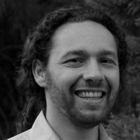 |
| INDUSTRIAL FORUM |
|
 |
| . |
|
|
Charalampos Zervos
National Technical University of Athens, Greece
Invited - Industrial Forum
Harry (Charalampos) obtained his Bachelor degree (BEng) at UMIST as an Electrical Engineer and finished his Master’s (MSc) from Imperial College in Communications and Digital Signal Processing in 2001. He was awarded his PhD in Experimental Solid State Physics in 2006 from Imperial College London. He is currently a Senior researcher in the Photonics Communication Research Laboratory in the National Technical University of Athens, Greece and his interests lie with Integrated Photonic Sensing systems. Harry has worked as a Senior Researcher of the Laser Team of ELI Beamlines project in Prague (part of Extreme Light Infrastructure project), participating in the development and implementation of high energy lasers. He was an optical engineer in Theon’s Sensors (Defence industry) in the Design and Development (D&D) division where he gained experience in system design and prototyping. He has also worked as a trainer for optical networks for Huawei. Harry has experience in the design and implementation of high energy laser systems, in optical design and modelling of free space optics with emphasis on visible, thermal optics and lasers. His professional experience include system design and integration as well as verification of optical systems within complex electro-optical devices with ultimate goal to start serial production.
|
|
|
|
|
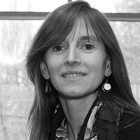 |
| INDUSTRIAL FORUM |
|
 |
| . |
|
|
Amaia Zurutuza
Graphenea, Spain
Invited - Industrial Forum
She received her Ph.D. degree in polymer chemistry from the University of Strathclyde (Glasgow, UK) in 2002. From 2001 to 2003, she was a Postdoctoral Research Fellow working in two European projects related to molecularly imprinted polymers. In 2004, she joined Ferring Pharmaceuticals (previously Controlled Therapeutics) where she worked in the research of new controlled drug delivery systems as a Senior Polymer Scientist. Her contribution led to the granting of three patents in novel biodegradable and biostable polymers for the controlled release of active compounds. In 2010, she became the Scientific Director of Graphenea. At Graphenea, she leads the research and development activities on graphene-based materials. Since joining Graphenea, she has so far filed for fifteen patents and published more than 82 publications in peer reviewed journals, including Nature and Science. Principal Investigator in 21 EU FP7/H2020 funded research projects, 16 collaborative projects including the Graphene Flagship and 3 people training network projects. In the Graphene Flagship, she is a member of the executive board and world package leader in the wafer scale integration (Graphene Flagship) and deputy leader in the wafer scale growth (Experimental Pilot Line) workpackages. In addition, she has also given more than 52 invited talks in international conferences. Her research interests include the synthesis, characterization, and future industrial applications of graphene.
|
|
|
|
|
| |
|
|
|
|
|
 |
|